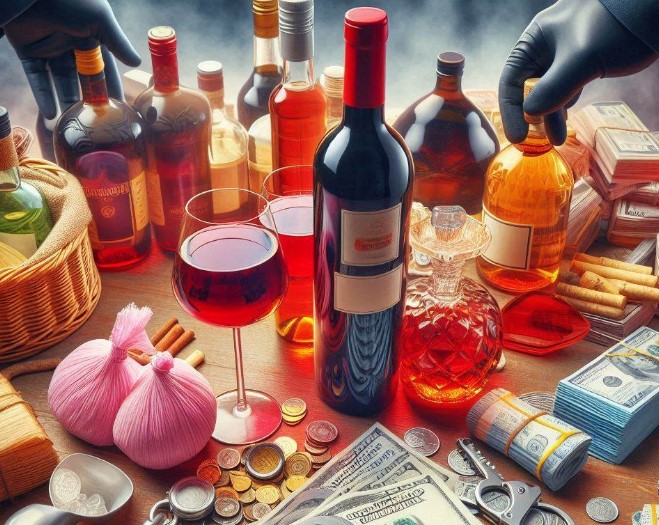While luxury goods and fashion are often at the forefront of discussions about product counterfeiting, a recent report from the European Union Intellectual Property Office (EUIPO) reveals an alarming reality: Spain’s wine and spirits industry is suffering massively from fraud involving counterfeit products. Economic losses are estimated at a staggering 380 million euros, placing Spain at the unfortunate top of the EU. This revelation sheds light on a problem that goes far beyond mere financial damage.
Lost Jobs and Tax Revenues: The Dark Side of Counterfeiting
The EUIPO report, covering the period from 2013 to 2017, paints a grim picture of the impact of counterfeiting on the European economy. Specifically, in the wine and spirits sector, an estimated 2.289 billion euros in sales were lost across the EU, and nearly 5,700 jobs were destroyed. For Spain, this means a loss of over 1,100 jobs annually, making our country the second most affected in terms of employment after France. In addition, there are estimated tax losses of 2.068 billion euros, depriving public services of much-needed funds.
Organized Crime in a Glass: The Methods of Counterfeiters
The European Commission has repeatedly emphasized that counterfeit products no longer only affect luxury goods. The 2022 Intellectual Property Crime Threat Assessment Report highlights that in 2020, food was the second most seized category of counterfeit products at the EU’s external borders. Counterfeit beverages, especially alcoholic ones, represent a persistent problem. Behind this are often highly organized criminal groups that use sophisticated methods to deceive consumers.
A particularly perfidious trick used by counterfeiters is the reuse of original bottles or the application of fake labels to empty bottles. This practice makes it extremely difficult for both consumers and authorities to distinguish between genuine and fraudulent products. The quality and safety of these counterfeits are in no way guaranteed, posing a significant health risk to consumers.
Protection Against Counterfeits: Tips for Consumers and the Role of Brand Defense
Given these alarming developments, it is crucial that consumers remain vigilant. The Association for the Defense of the Brand (Andema) provides clear recommendations on how to protect oneself from purchasing counterfeit products. Gerard Guiu, CEO of Andema, advises: “Buy from official or trusted websites, avoid websites with little information or in other languages, and of course, be careful with bargains. If something is too cheap to be authentic, it probably is.” This advice is invaluable, as an informed purchasing decision by every individual is an important building block in the fight against the wave of counterfeiting.
Combating product counterfeiting requires a concerted effort from governments, law enforcement agencies, and the industry itself. Only through increased controls, international cooperation, and awareness campaigns can this billion-euro fraud be effectively curbed. The Spanish wine and spirits industry, a flagship of the national economy, deserves special protection to maintain its integrity and global reputation.




